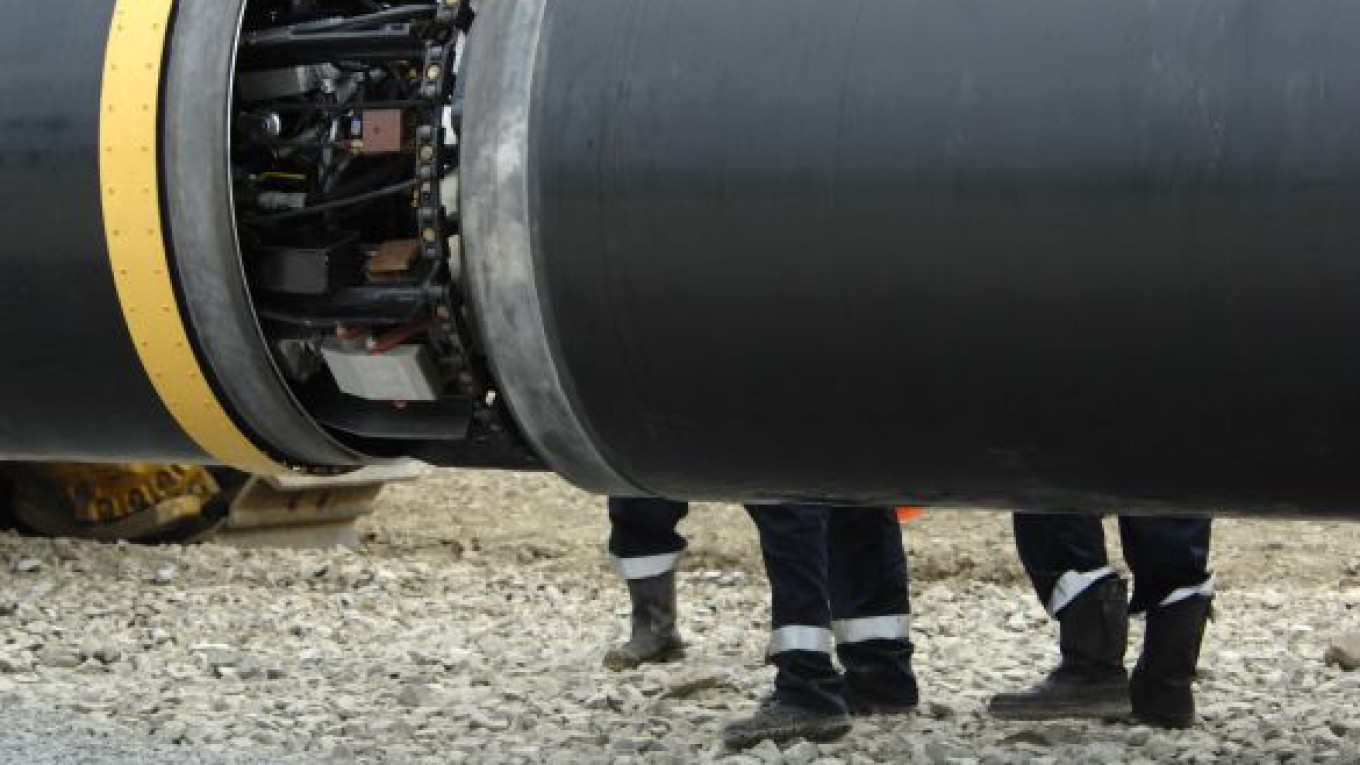Immediately after Gazprom bought out international companies' stakes in Sakhalin-2, the state received a privileged share in Sakhalin Energy, which paid a $1.35 billion dividend.
"I want to thank our partners for their flexibility," Prime Minister Vladimir Putin said when Shell, Mitsui and Mitsubishi agreed to cede control over Sakhalin Energy, the operator of the Sakhalin-2 natural gas deposit, to Gazprom for $7.45 billion.
The authorities had been involved in a conflict with the international investors for two years. The investors had been accused of environmental violations and cost overruns, and the government threatened that it would pull their licenses and bring criminal charges.
On April 19, 2007, two days after Gazprom bought a stake in Sakhalin energy, the operator signed an agreement with the government, which was issued a single privileged share without voting rights but with obligatory dividends, both fixed and variable. For 2007, the liabilities only for the fixed portion of the dividend were $1.35 billion. This is described in Sakhalin Energy's 2007 report according to U.S. generally accepted accounting principles, a copy of which Vedomosti was able to obtain. (The company doesn't publish public results).
The dividend was a serious outlay for Sakhalin Energy: Its earnings for 2007 were $939 million. The payments to the government were recorded as other expenses, and the company finished 2007 with losses of $1.36 billion. Other shareholders didn't receive dividends in 2006 to 2007, the report said.
The report didn't indicate when the state budget received the dividends for 2007. A Gazprom employee said there have not been any payments so far, but there definitely will be. An official taking part in the deal said the payment already went through.
Representatives of Sakhalin Energy, Gazprom, Shell and the government refused to discuss the issue. The deal was kept as a strict secret, a government official said. There is no legal obligation to divulge such assets and deals, said Dmitry Stepanov, a partner at Yegorov, Puginsky, Afanasiyev & Partners.
The special share was purchased by what was then the Industry and Energy Ministry for a nominal fee, said an official taking part in the deal. Nominal means $1, said another person close to Gazprom.
The ministry was the nominal owner of the share, and all income from the share went into the treasury. The body authorized to deal with such purchases, the Federal Property Management Agency, couldn't have made such a purchase quickly enough; it would have needed amendments in the state budget.
The dividends for Russia were calculated to recoup the profits that the state was owed for several years but was unable to get because of cost overruns on Sakhalin-2 (costs increased from $12 billion to $21.5 billion), said the first official.
The question was whether to keep the production sharing agreement for Sakhalin-2. The investors violated the agreement, so a mutual deal was discussed — the sale of their stake to Gazprom and the issue of a special stock for Russia.
The dividends should be roughly the same every year as they were in 2007, a person close to the Economic Development Ministry said, but Vedomosti was unable to confirm this.
A Message from The Moscow Times:
Dear readers,
We are facing unprecedented challenges. Russia's Prosecutor General's Office has designated The Moscow Times as an "undesirable" organization, criminalizing our work and putting our staff at risk of prosecution. This follows our earlier unjust labeling as a "foreign agent."
These actions are direct attempts to silence independent journalism in Russia. The authorities claim our work "discredits the decisions of the Russian leadership." We see things differently: we strive to provide accurate, unbiased reporting on Russia.
We, the journalists of The Moscow Times, refuse to be silenced. But to continue our work, we need your help.
Your support, no matter how small, makes a world of difference. If you can, please support us monthly starting from just $2. It's quick to set up, and every contribution makes a significant impact.
By supporting The Moscow Times, you're defending open, independent journalism in the face of repression. Thank you for standing with us.
Remind me later.


